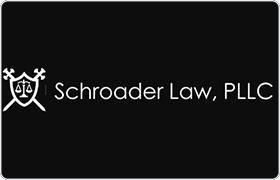Mckenna Divorce & Family Law Lawyer, Washington
Sponsored Law Firm
-
 x
x

Click For More Info:
-
Schroader Law, PLLC
1105 Tacoma Ave S Tacoma, WA 98402» view mapDivorce & Family Law Exceptional Legal Service
Schroader Law, PLLC offers superior service from start to finish. Attorney Schroader is a knowledgeable lawyer offering comprehensive legal advice with realistic expectations.
800-916-9671
Charles Edward Black
Commercial Real Estate, Child Custody, Elder Law, Bankruptcy
Status: In Good Standing Licensed: 46 Years
Anita O'rourke
Family Law, Juvenile Law, Criminal, Insurance
Status: In Good Standing Licensed: 37 Years
M. Catherine Walsh
Federal Appellate Practice, Divorce & Family Law
Status: In Good Standing Licensed: 38 Years
James Martin Thrasher
Administrative Law, Family Law, Education, Securities Regulation
Status: Inactive Licensed: 46 Years
Steven Richard Levy
Bankruptcy, Personal Injury, Civil Rights, Family Law
Status: Inactive Licensed: 52 Years
Edward Gene Holm
Wills, Estate Planning, Adoption, Criminal
Status: In Good Standing Licensed: 58 Years
William A. Harrison
DUI-DWI, Estate Planning, Family Law, Administrative Law
Status: Deceased Licensed: 57 Years
 Dennis Schroader Tacoma, WA
Dennis Schroader Tacoma, WA Practice AreasExpertise
Practice AreasExpertise
